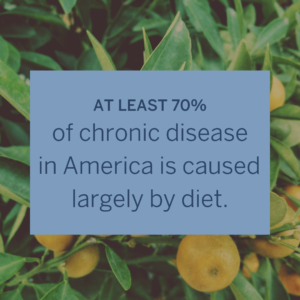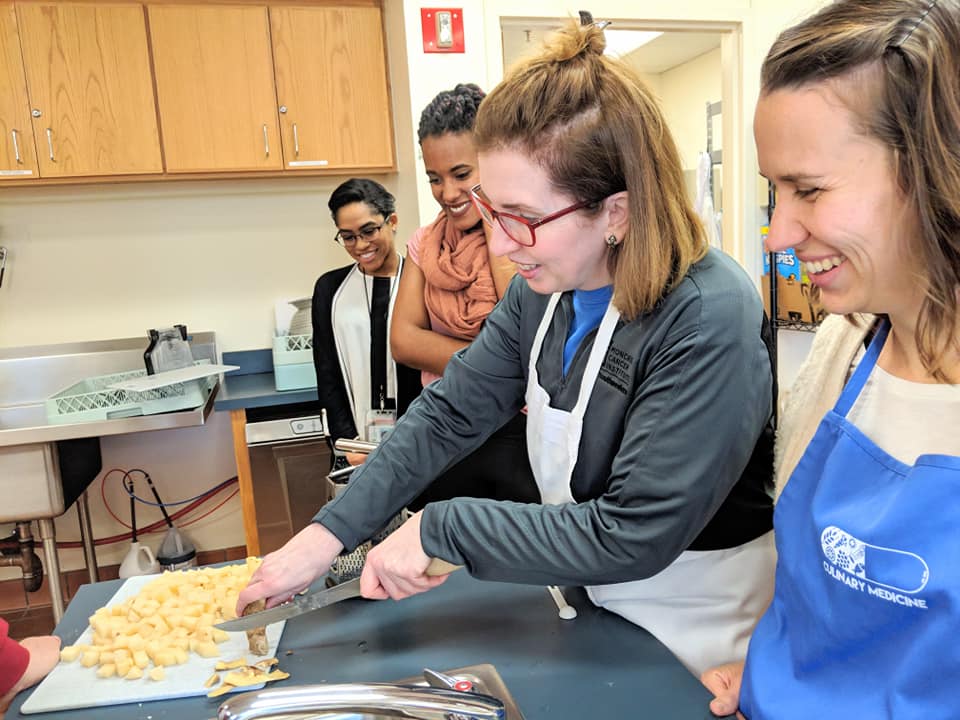
Fewer than one in four practicing physicians report feeling adequately trained to have these conversations with their patients2, even though they are clearly needed. How can this problem be addressed?
People come to medical professionals wanting advice, asking for referrals and seeking resources. We hear things from friends, read things on the internet, and want to know, “what can I do?” or “where can I start?” or “is this even legitimate science?” It is a completely reasonable assumption that patients should be able to get assistance with navigating nutrition from their health care team. Unfortunately, we have not done a great job educating physicians about how to talk to their patients about food, and connections between physicians and the health professionals specifically trained in nutrition (registered dietitians) have not been fully utilized. Fewer than one in four practicing physicians report feeling adequately trained to have these conversations with their patients2, even though they are clearly needed. How can this problem be addressed?
How Can Culinary Medicine Help?
With a dietitian-physician education partnership at its core, the Culinary Medicine program at
UT Southwestern hopes to be a part of the solution. Our team provides hands-on culinary and medical nutrition therapy training for medical students, residents, health professionals and community members. Utilizing research and principles surrounding the Mediterranean Diet, this program strives to give these professionals the tools they need to be able to change the dialogue between doctor and patient. At every encounter, medical professionals should be comfortable offering sound, evidence-based answers and suggestions to their patients for improving their health through the food they eat.
Our goal is to focus first on teaching medical students, because data suggests medical providers are much more likely to pass this information on to their patients and make a significant impact on health outcomes for the population they treat3. We focus on practical culinary literacy blended with medical nutrition therapy in our classes, followed up by case study-based discussions about the patient experience with common chronic diet-related diseases, such as hypertension and diabetes. Furthering this theme, we take students out of the teaching kitchen and into the community to assist in hands-on cooking classes for food pantry recipients to spread the message that preparing and eating healthy food can be inexpensive, easy to prepare and, most importantly, delicious.

Milette (second from right) and some of her med students at UT Southwestern
To learn more from your health care professional about food, remember, it is okay if the answer you get is, “I don’t know.” Letting your provider know that this information is desired could be the spark that generates an interest in expanding their knowledge base, and the science behind good nutrition.
Culinary Medicine and similar programs are increasingly mainstream, and patients are beginning to see the benefit. Opportunities to attend educational conferences and seminars for continuing education are expanding nationally. The Culinary Medicine website has a wealth of excellent handouts and delicious recipes for staying well.
To learn more from your health care professional about food, remember, it is okay if the answer you get is, “I don’t know.” Letting your provider know that this information is desired could be the spark that generates an interest in expanding their knowledge base, and the science behind good nutrition. Culinary Medicine exists to help foster a more robust discussion about disease prevention between you, your physician, and your health management team.
Sources
- Eisenberg, D.M. and J.D. Burgess, Nutrition Education in an Era of Global Obesity and Diabetes: Thinking Outside the Box. Academic Medicine: Journal of the Association of American Medical Colleges, 2015. 90(7): p. 854-60
- Adams, K.M., The State of Nutrition Education at US Medical Schools. Journal of Biomedical Education, 2015.
- Monlezun, D.J., et al., Novel Longitudinal and Propensity Score Matched Analysis of Hands-On Cooking and Nutrition Education versus Traditional Clinical Education among 627 Medical Students. Advances in preventive medicine, 2015. 2015: p. 656780.

